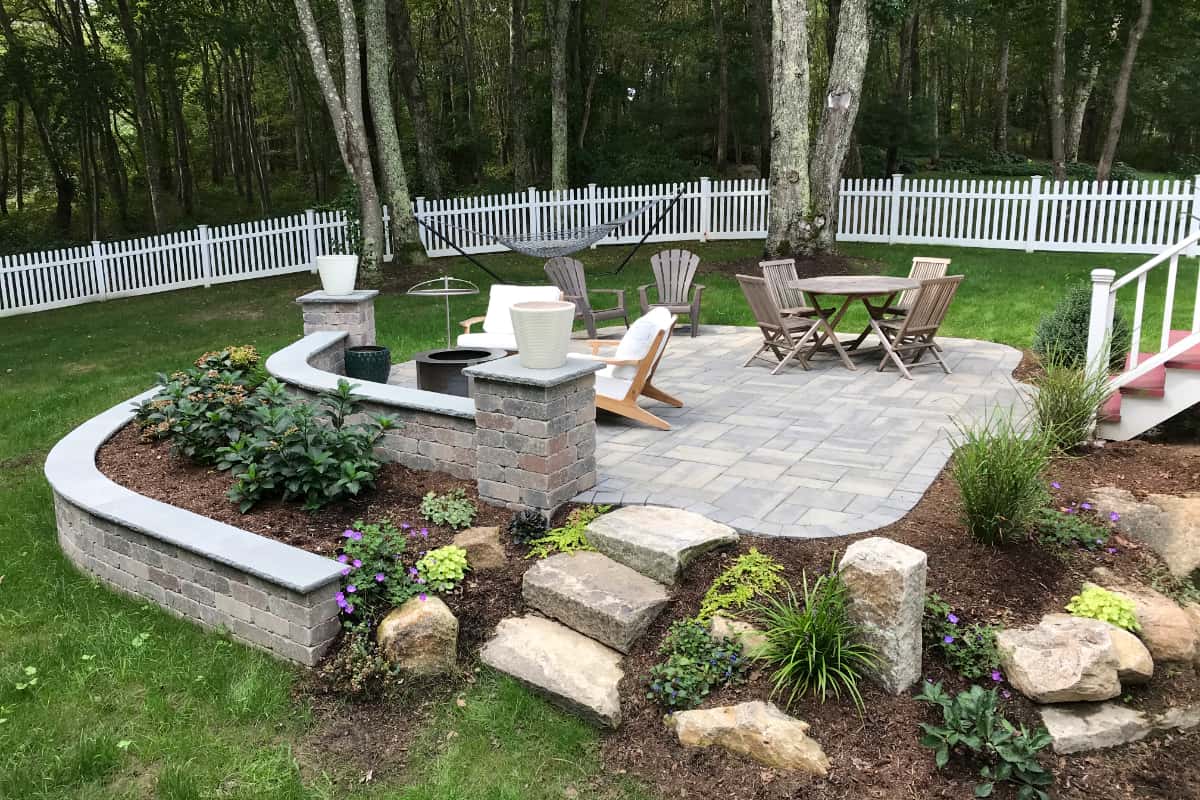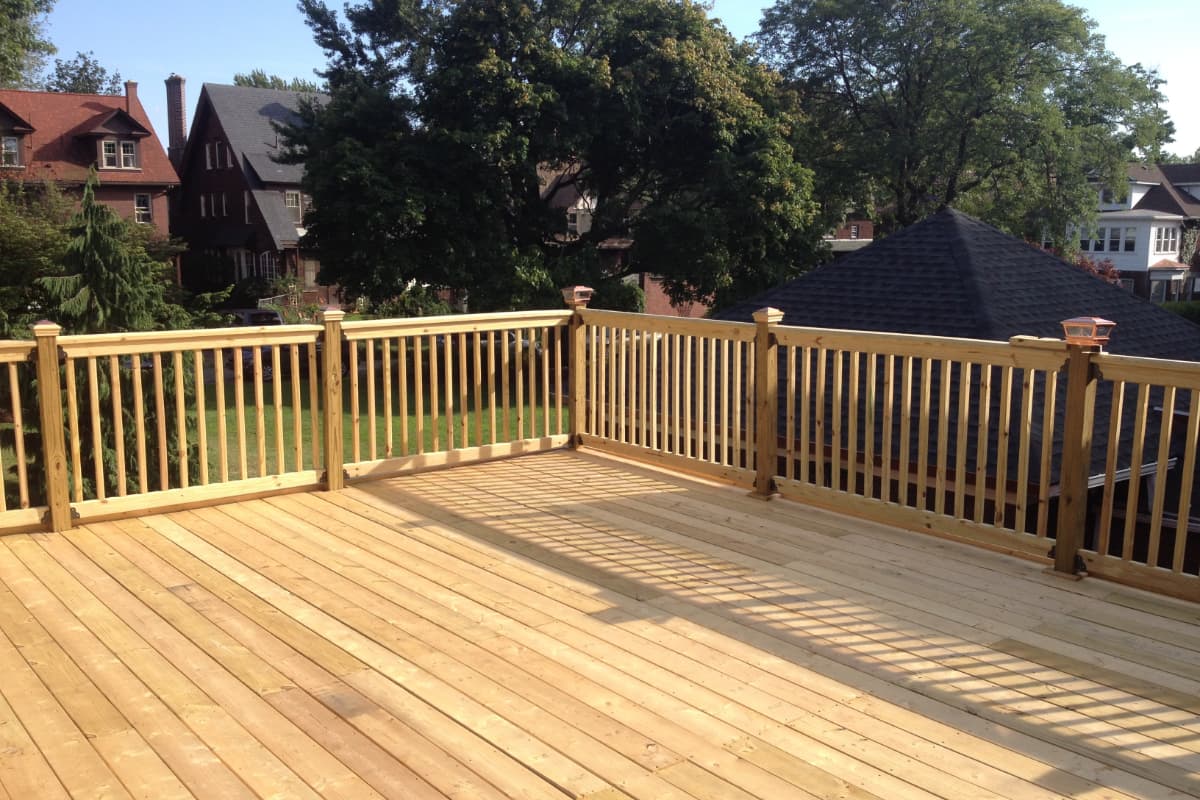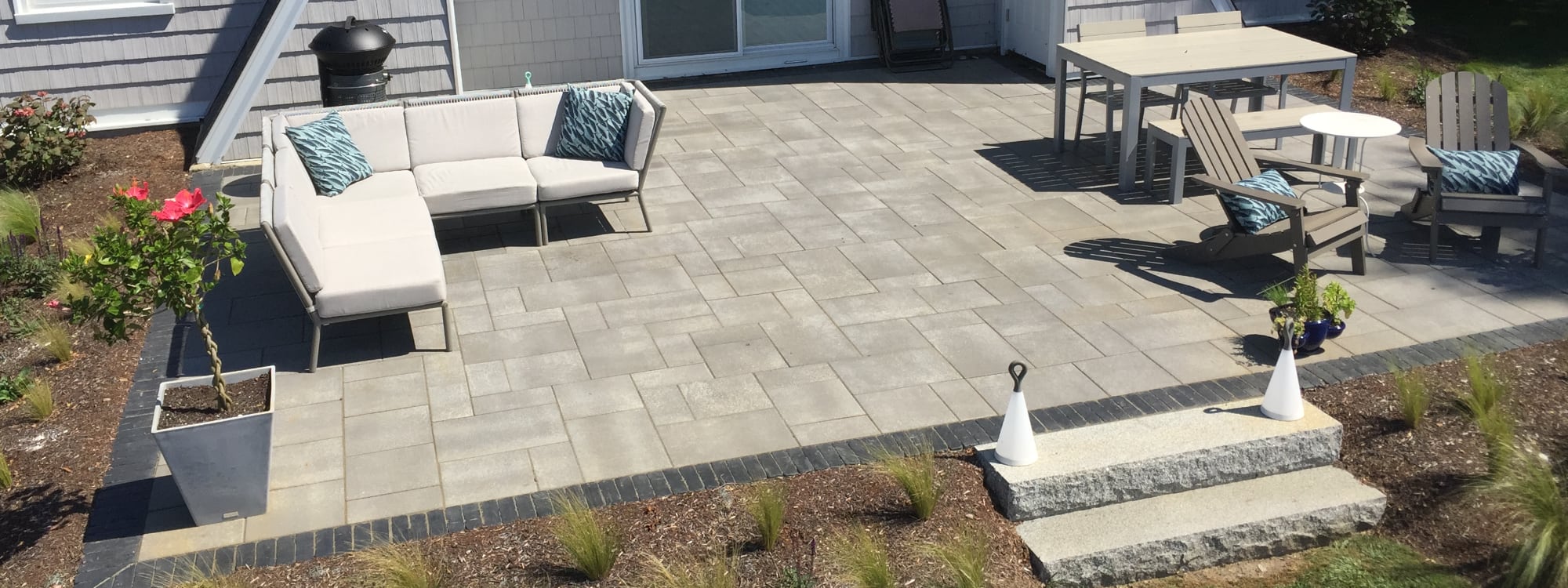When it comes to creating an outdoor living space in Rhode Island, one of the biggest decisions homeowners face is whether to go with a paver patio or a wood deck. Both options offer unique benefits and drawbacks, and it’s important to weigh the pros and cons carefully to ensure you make the right choice for your home and lifestyle.
The Breakdown of Paver Patios
A paver patio is an outdoor living space crafted from interlocking paving stones or concrete pavers laid over a level crushed stone base. These patios are durable and long-lasting. A primary benefit of a paver patio is the design flexibility – you can create intricate patterns and designs using different paver styles, colors, and textures.

The Pros of Paver Patios
- Low Maintenance: Unlike wood that requires annual staining/sealing, paver patios are virtually maintenance-free. Just an occasional sweeping or washing is all it takes to keep them looking brand new.
- Superior Durability: Properly installed paver stones are incredibly strong and able to withstand decades of freeze/thaw cycles without cracking or heaving. This makes them ideal for our harsh Rhode Island winters.
- Design Versatility: Pavers come in a wide variety of materials, colors, shapes, and patterns. This allows us to create truly custom, one-of-a-kind outdoor living spaces tailored just for you.
The Cons of Paver Patios
- Potential Higher Initial Cost: While extremely durable, paver installations can have more labor and material costs upfront compared to decks.
- Not a DIY Project: Proper base preparation and technical masonry skills are required. This is not recommended as a DIY project for homeowners.
How Wood Decks Compare
A wood deck is an outdoor raised platform constructed from pressure-treated lumber or hardwood. Many homeowners choose wood decks for their lower upfront cost compared to patios. The primary benefit is creating an elevated, contained space to entertain or relax while taking advantage of being outdoors.

The Pros of Wood Decks
- Faster Construction: Decks generally require less preparation work and can be installed in a shorter timeframe.
- DIY Potential: With the right tools and instructions, a deck can be a reasonable DIY project for the dedicated homeowner.
- Lower Upfront Costs: Decks tend to be more affordable for the initial material and labor investment.
The Cons of Wood Decks
- Higher Maintenance: Wood decks need regular power washing, staining/sealing every 1-2 years, and structural repairs as the material weathers over time.
- Material Deterioration: Even with diligent maintenance, wood is susceptible to cracking, splitting, warping and decay when exposed to New England’s freeze/thaw cycles.
- Limited Lifespan: Most decks need major repairs or full replacement after 10-20 years depending on the climate conditions.
What’s the Verdict?
When you consider the low maintenance requirements and long-lasting lifespan, paver patios prove to be the more cost-effective investment for homeowners. While decks can provide a faster, lower-cost solution initially, the ongoing repair/replacement costs over decades can add up significantly.
Ultimately, both paver patios and decks allow you to enjoy the luxury of outdoor living. But if you want to spend more time actually relaxing on your patio and less time maintaining it, pavers are certainly the way to go in Rhode Island.
Still unsure which option is right for you? Take advantage of our free, no-obligation consultation and 3D design rendering to see how a paver patio will look at your home.
Start Your Free 3D Design Consultation

